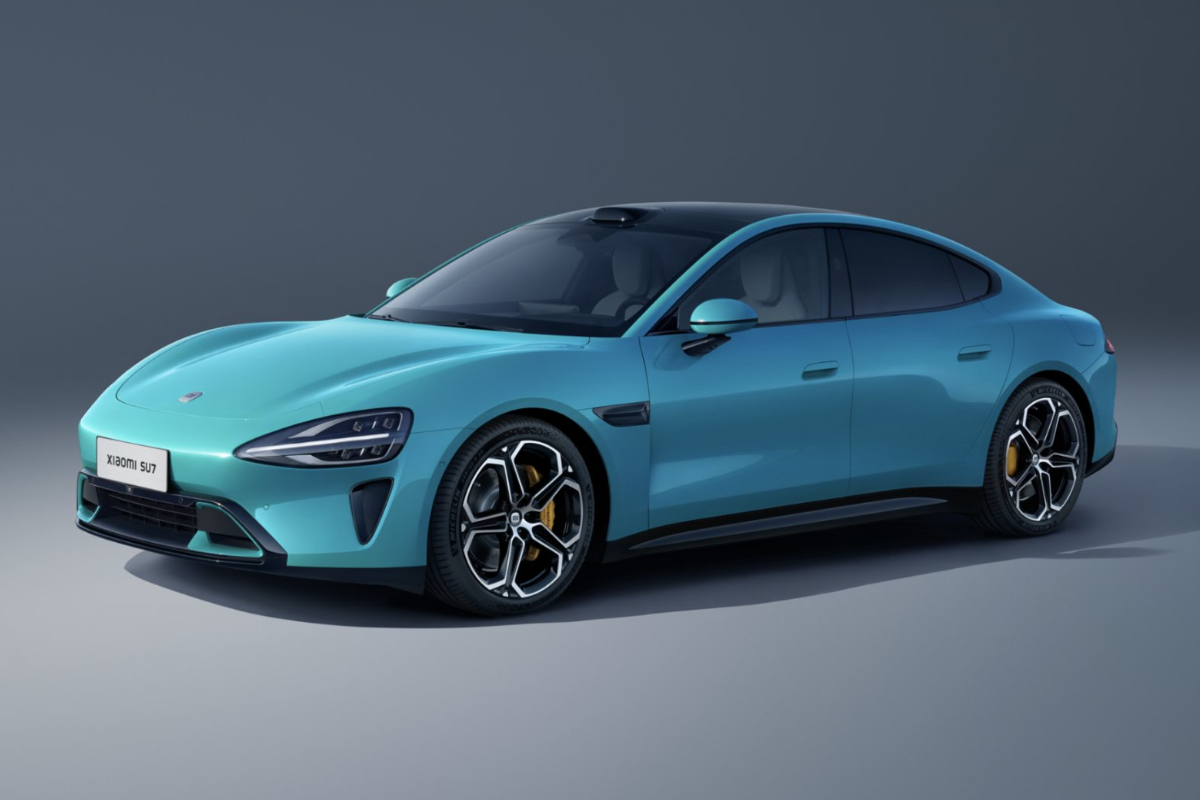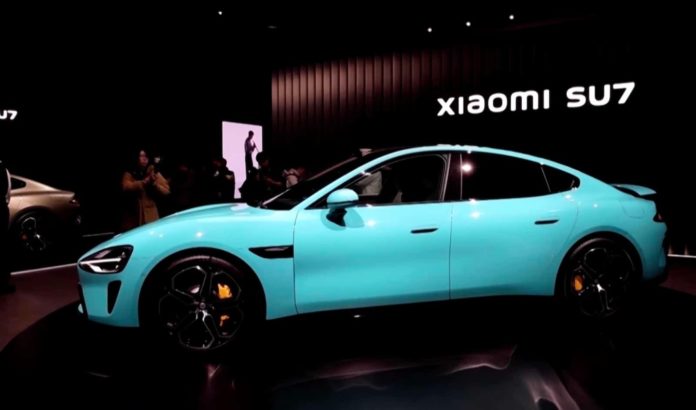Xiaomi, renowned for its innovation in smartphones and electronics, unveiled its inaugural electric vehicle, the SU7, marking its ambitious move into the fiercely competitive automobile industry. With plans to ascend into the league of top global automakers, Xiaomi aims to revolutionize the market with cutting-edge technology and a strategic vision.
Xiaomi’s Vision for the Future
The SU7, showcased its ‘Speed Ultra’ capabilities, boasts an impressive “super electric motor” technology, positioning itself to rival the acceleration speeds of renowned competitors like Tesla and Porsche. Despite the challenging landscape of China’s auto market, characterized by overcapacity and declining demand, Xiaomi’s CEO, Lei Jun, remains steadfast in his vision to elevate the company into the echelons of the top five automakers worldwide.

Fusing Xiaomi’s technological prowess with the automotive sector, the SU7 integrates seamlessly with the company’s existing portfolio of mobile apps and operating systems. Leveraging its vast consumer electronics base and smart device ecosystem, Xiaomi endeavors to redefine the automobile as a sophisticated smart device, appealing to a tech-savvy clientele.
A challenging market
However, amidst grand aspirations, challenges occur. The vehicle, set to hit the market in the coming months, faces the daunting task of competing in an already crowded space dominated by established players like Tesla and BYD. Pricing strategies and market reception will play pivotal roles in determining Xiaomi’s success in this fiercely competitive landscape.
Promising an impressive driving range of up to 800 km on a single charge, coupled with advanced features tailored for adverse weather conditions, Xiaomi aims to cater to consumer concerns about both range anxiety and winter driving challenges. The emphasis on fast-charging capabilities in low temperatures and cutting-edge obstacle recognition technology underlines Xiaomi’s commitment to delivering a comprehensive and reliable driving experience.
)
Ambitions Versus Investor Sentiments
Despite Lei Jun’s audacious ambitions, Xiaomi’s share price didn’t experience the expected surge, indicating market skepticism or perhaps the need for further validation of its automotive endeavors. Nevertheless, Xiaomi’s commitment to invest $10 billion in the automotive sector underscores its determination to disrupt and diversify its business beyond smartphones.
As Xiaomi joins the ranks of tech giants like Huawei and Baidu venturing into the EV realm, its partnership with BAIC Group offers manufacturing capabilities, aiming for an annual production capacity of 200,000 vehicles. Yet, the competition remains fierce, with BYD leading the Chinese EV market, posing a significant challenge alongside Tesla’s formidable presence.
In a rapidly evolving landscape, Xiaomi’s debut in the electric vehicle domain heralds an era of technological convergence. Whether it can carve a distinct niche and emerge as a formidable contender among automotive titans remains a thrilling narrative to watch unfold in the evolving period of the global electric vehicle revolution.
Stay tuned to Brndsynario for more!





































